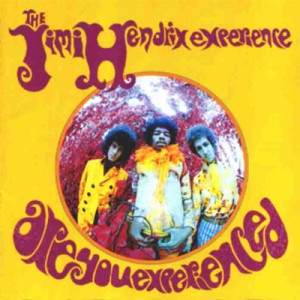Okay, I’ve been writing for 20 years. Yes. Well, actually, I’ve been writing all of my life. But twenty years ago, I wrote my first novel. The Dream of the Archer. If you can call it a novel. Actually, it was an experience. Like climbing Everest. Like drinking Starbucks until you can’t feel your teeth. Like watching Firefly.
 An experience. Are you experienced? The Dream of the Archer was David Lynch meets Lord of the Rings meets Pulp Fiction. It was postmodern Shakespeare, part novel, part play, first person, third person, in verse, shattering the third wall. And it had a demon in it. Jezerel Stone. My villain, Eljer Wetnight, summoned him. Eljer, as in the toilet. I used to name all my villains after toilets. Eljer Wetnight. Feral Sloan. St. John Regal. Toilets.
An experience. Are you experienced? The Dream of the Archer was David Lynch meets Lord of the Rings meets Pulp Fiction. It was postmodern Shakespeare, part novel, part play, first person, third person, in verse, shattering the third wall. And it had a demon in it. Jezerel Stone. My villain, Eljer Wetnight, summoned him. Eljer, as in the toilet. I used to name all my villains after toilets. Eljer Wetnight. Feral Sloan. St. John Regal. Toilets.
(My friend would go into a bathroom and laugh because as he did his business, he would see the name of the toilet and think of my villains. Ha.)
Anyway, Jezerel Stone has a quote in The Dream of the Archer, and of course, this is wordy, and won’t make sense, and is in the guts of a book that will never be published. Oh, how my writing has improved. However, it is one of my most favorite passages, and as any writer can tell you, throw nothing away. And it captures what I want to say about demons today.
A little set up. Jezerel Stone has possessed a boy whose parents were slaughtered and who is in pain. And the boy is about to watch soldiers from this horrific army do terrible things to our hero and his princess. And this is what Jezerel Stone says to this poor boy:
Look boy, look at what they will do, and watch carefully. This is not my doing, this is not the work of the devil, this is done by your own kind, and really, these men are good people, though you won’t remember such things when you see them cutting off the fingers of the man and raping the woman. You will forget that, but I shall not, because that makes it all the more enjoyable, all the more ironic. These same men have given food to the poor, have helped old people with their houses, have been caring and kind to their family, and now they will do these evil things and hate themselves for it. Watch, boy, and learn, and remember too, the men who did the evil things to your family, were good people as well.
I’ve said it before in my other demon post that demons are a nice idea. We can put the evil on fictional characters of pure darkness.
But in this world, the truth is far more mundane. The most terrible crimes imaginable have been committed by simple human beings. Not demons. Human beings who were good, gave into evil, and were most likely good after that. Hitler probably liked to pet puppies.
Ah, how confusing, this hard, old world. How tragic. And yet, how grand. Because 98% of the people you will meet are just trying to get through and aren’t evil at all. The other 2%?

My father was a policeman for over thirty years and most of the time, he saw police work as being a lot like working those mean streets of Mayberry. When asked which show captured police work, my dad wouldn’t say The Wire, or Hillstreet Blues, or NYPD Blue. Nope. He would say The Andy Griffith Show.
However, my dad did help arrest true evil. I won’t go into this man’s crimes. I don’t want to haunt you, but they were horrible. He did demonic things to old women. You can connect the dots.
True evil is out there. Soulless. Destroyed. But human. And perhaps that is more disturbing than any demon we can come up with.
I’ll leave you with a passage from The Dream of the Archer, from that same scene.
The Americans would find the archer and the princess and they would do things to them, things that Jezerel Stone knew all about. The demon understood the great secret, the secret that even Eljer Wetnight and his magic would never discover. That even though demons and other things were expert torturers and killers, the blackest things on the Stair had learned their arts from people; that without humans, in the end, none of the demons and their kind would have known what to do. Wetnight and his people would do terrifically horrible things to the archer and the princess, and Stone would watch and learn and perhaps centuries later he would imitate them. For now, he would watch and enjoy the revulsion the boy would feel as he looked at them. Not the pain the boy would feel, remembering what the American soldiers had done to his own family, not that sick pain which would send Stone scurrying on top of the boy, out of the suffering, but the revulsion as the boy understood that this is what people could do to one another.
